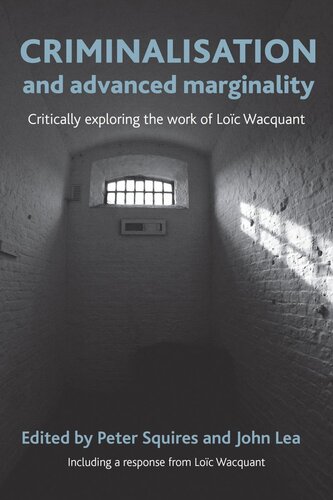

Most ebook files are in PDF format, so you can easily read them using various software such as Foxit Reader or directly on the Google Chrome browser.
Some ebook files are released by publishers in other formats such as .awz, .mobi, .epub, .fb2, etc. You may need to install specific software to read these formats on mobile/PC, such as Calibre.
Please read the tutorial at this link: https://ebookbell.com/faq
We offer FREE conversion to the popular formats you request; however, this may take some time. Therefore, right after payment, please email us, and we will try to provide the service as quickly as possible.
For some exceptional file formats or broken links (if any), please refrain from opening any disputes. Instead, email us first, and we will try to assist within a maximum of 6 hours.
EbookBell Team

4.3
78 reviewsThis book represents the first full-length critical and interdisciplinary assessment of Loïc Wacquant's work in English. Wacquant's challenging critique of the neo-liberal government of crime and the punitive culture to which this is related has shaken criminology to its foundations. In a bold political analysis he describes how the US-led revolution in law and order has dismantled the welfare state, replacing it with a disciplinary and penal state. Wacquant's analysis also details the spread of neo-liberal crime control measures and the underpinning 'pornographic' discourses of crime across the developed world, although critics have questioned the extent to which this model of criminal justice really is gaining the worldwide dominance alleged. Written by criminologists and policy analysts, Criminalisation and advanced marginality offers a constructive but critical application of Wacquant's ideas. The contributors welcome the opportunity presented by Wacquant's work to re-engage with a radical politics of law and order, criminalisation and marginality, whilst raising issues of gender, resistance, conflict and history which, they argue, help to enrich and further develop Wacquant's analyses. The book concludes with a chapter from Professor Wacquant himself responding to the commentaries upon his work. It fills an important gap in the existing literature and will be exciting reading for academics and students of criminology, social policy and the social sciences more broadly.